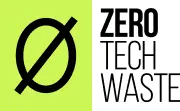In this article
- Why is certified IT recycling essential for finance and law firms?
- What are the legal obligations for IT disposal in finance and law?
- IT disposal, what are the risks?
- Which regulations govern IT equipment disposal for financial and legal services?
- What kind of IT equipment needs secure disposal?
- How has digital transformation increased IT disposal challenges for legal and financial sectors?
- How should law firms handle confidential data during IT recycling?
- What IT disposal requirements do banks and financial institutions face?
- What does good IT disposal look like?
- How can law firms and banks meet ESG requirements through IT recycling?

Why is certified IT recycling essential for finance and law firms?
Few industries handle data as sensitive or valuable as the finance and legal sectors. Whether it’s client records, transaction histories, or confidential legal documents, there is no margin for error when it comes to protecting this information. One area that often goes unnoticed, however, is what happens to this data once the hardware it’s stored on reaches the end of its life.
Disposing of outdated IT equipment may appear straightforward, but for banks, law firms, and financial services providers, it is a complex and highly regulated process. With legal obligations, professional standards, and reputations at stake, secure IT recycling must be taken seriously.
What are the legal obligations for IT disposal in finance and law?
Technology continues to evolve at pace. Regular hardware refreshes, new laptops for employees or infrastructure upgrades, are a routine part of modern operations. But each upgrade leaves behind a trail of outdated electronic equipment – devices that may still hold confidential data.
In tightly regulated industries like finance and law, this poses a clear compliance risk. The Financial Conduct Authority (FCA), Solicitors Regulation Authority (SRA), UK General Data Protection Regulation (UK GDPR), and Waste Electrical and Electronic Equipment (WEEE) regulations all place legal responsibilities on firms to handle data and dispose of e-waste securely. Falling short can result in financial penalties, reputational damage, and loss of client trust.
IT disposal, what are the risks?
The types of data managed by financial and legal organisations are often highly sensitive. Financial institutions may store transaction logs, client portfolios, or compliance data. Legal practices deal with contracts, litigation documents, and privileged client communications.
Even a single device, a forgotten hard drive, a misplaced laptop, can risk a serious breach. These assets often hold data that could be exploited by cybercriminals or competitors. Importantly, a firm’s responsibility does not end when the device leaves the premises. If data is not securely wiped or physically destroyed, the organisation remains liable.
Secure, certified data destruction is a fundamental requirement for safeguarding client confidentiality, ensuring regulatory compliance, and protecting your firm’s reputation.
Which regulations govern IT equipment disposal for financial and legal services?
For firms in the finance and legal sectors, obligations under data protection laws extend to the entire lifecycle of IT equipment, including disposal. In fact, this final stage is often when data becomes most vulnerable.
Key regulatory frameworks include
- Financial Conduct Authority (FCA) – requires firms to demonstrate robust data governance across the entire data lifecycle, including the secure disposal of IT assets.
- Solicitors Regulation Authority (SRA) – mandates the secure management of all client information, wand applies to all SRA regulated firms, their managers, compliance officers and employees.
- UK GDPR and the Data Protection Act 2018 – imposes legal obligations to ensure the secure erasure or destruction of personal data held on IT equipment.
- Waste Electrical and Electronic Equipment (WEEE) regulations – require the responsible recycling of electronic waste, placing legal duties on businesses to ensure safe and environmentally compliant disposal.
- Technology on sector-specific systems (e.g. Payment Card Industry (PCI) Decision Support System (DSS), Anti-Money Laundering (AML) regulations) may apply depending on the nature of services provided.
Compliance with these regulations must be integrated into every stage of IT asset management from acquisition to final disposal.
What kind of IT equipment needs secure disposal?
Secure IT disposal goes well beyond standard office desktops. Based on industry experience, the following equipment is often overlooked yet still holds sensitive data –
- Trading desks and terminals used in investment environments
- Servers and network hardware storing financial transactions or client records
- Laptops, tablets, and mobile phones used in daily operations
- Printers, copiers, and scanners that retain stored documents or scanned images
- Video conferencing systems used for hearings, negotiations, or client discussions
- Backup drives and USB sticks that may contain archived or residual data
All of these devices require specialist treatment, not only to remove data, but to do so in a way that satisfies strict compliance standards.
How has digital transformation increased IT disposal challenges for legal and financial sectors?
Both the financial and legal sectors have embraced digital transformation. Mobile banking is now the standard, and legal professionals increasingly rely on remote hearings, virtual collaboration tools, and cloud-based case management. But this rapid innovation has led to a sharp rise in e-waste. Frequent hardware upgrades, multiple mobile devices, and complex infrastructure all increase the volume of end-of-life equipment needing secure disposal.
Managing this challenge is not only about data protection or regulatory compliance, it’s also about environmental responsibility as the volume of redundant IT equipment requiring disposal continues to rise. As influential sectors within the UK economy, financial and legal firms have a critical role to play in supporting the circular economy. This means ensuring that end-of-life IT assets are not only securely recycled, but also reintroduced into the supply chain in ways that reduce environmental harm.
Zero Tech Waste supports this by offering UK-based, closed-loop recycling solutions that prevent e-waste from being exported to developing countries. The focus is on reducing carbon emissions and keeping IT materials within a sustainable, domestic system.
The Legal Sustainability Alliance (LSA) has some useful articles on how to understand your firms carbon impact and guidance on developing Green Policies specifically for the legal sector.
How should law firms handle confidential data during IT recycling?
Law firms, barristers’ chambers, and accountancy practices generate a diverse range of e-waste through daily operations. From document management systems to client communication platforms, these organisations rely heavily on technology that must be securely decommissioned at end of life.
The privileged and confidential nature of legal data demands the highest standards of information security. Whether a small high-street firm or a multinational practice, all legal institutions must ensure client data is safeguarded, right through to the final stage of disposal.
What IT disposal requirements do banks and financial institutions face?
From investment banks and insurance firms to building societies and retail lenders, financial organisations rely heavily on complex, technology-driven infrastructures. Systems such as trading platforms, customer databases, ATM networks, and compliance tools all generate significant volumes of IT hardware.
Much of this equipment contains sensitive personal and financial data, making secure disposal an important priority. According to a recent FinTech report, the financial services sector experienced the most expensive data breaches in 2024, with stolen or compromised credentials being the leading cause. This highlights the importance of robust disposal practices.
For financial institutions, IT recycling is not just an operational task, it’s a matter of risk management, compliance, and client trust. Specialist processes are essential to ensure all regulatory requirements are met and data is protected throughout the recycling journey.
What does good IT disposal look like?
Best-practice IT recycling in legal and financial services includes the following key steps:
- Track your assets – Keep an accurate inventory of equipment, with particular attention to any device that has stored client data.
- Work with certified partners – Choose ISO-accredited providers who understand sector-specific regulations and employ security-cleared staff. They should offer secure logistics, storage, and certified destruction processes.
- Get the paperwork – Always request data destruction certificates, environmental compliance documentation, and carbon offset certificates. These may be essential during audits or in the event of a data breach.
- Train your team – Ensure staff are aware of disposal procedures and understand the potential risks of non-compliance.
Effective IT disposal is about more than removing old hardware, it’s about complete visibility, accountability, and assurance that every device is processed securely and responsibly.
How can law firms and banks meet ESG requirements through IT recycling?
Across the legal and financial sectors, environmental, social, and governance (ESG) considerations are becoming central to strategy. Clients and regulators increasingly expect firms to demonstrate real action, not just policy statements.
Responsible IT recycling provides a tangible and measurable way for firms to demonstrate their environmental and compliance commitments. Zero Tech Waste processes 100% of the IT equipment it collects and issues carbon offset certificates as standard. By delivering secure, fully compliant, and environmentally responsible recycling services, the company supports law firms, accountancy practices, banks, and insurers in reducing their environmental impact while meeting all relevant UK regulatory requirements.
For organisations that continue to manage physical records, Zero Tech Waste also offers a certified secure paper shredding service, ensuring end-to-end protection of both digital and paper-based information.







